|
|
This week in: Peace & Security Publications |
IPSI | Africa | Americas | East Asia | Middle East | South Asia
|
|
|
|
|
This week in Peace & Security Publications
|
|
|
|
|
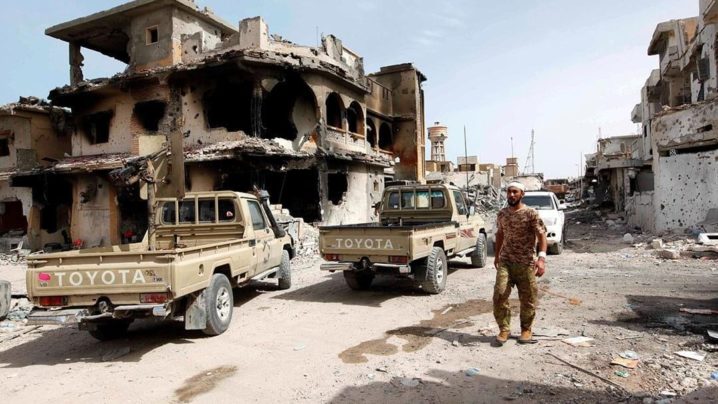 The Islamic State (ISIS) is in sharp decline, but in its rout lie important lessons and lingering threats. This is true for the four countries of the Maghreb covered in this report, Algeria, Libya, Morocco and Tunisia, which constitute a microcosm of ISIS’ identity, trajectory and shifting fortunes to date. The Islamic State (ISIS) is in sharp decline, but in its rout lie important lessons and lingering threats. This is true for the four countries of the Maghreb covered in this report, Algeria, Libya, Morocco and Tunisia, which constitute a microcosm of ISIS’ identity, trajectory and shifting fortunes to date.
|
|
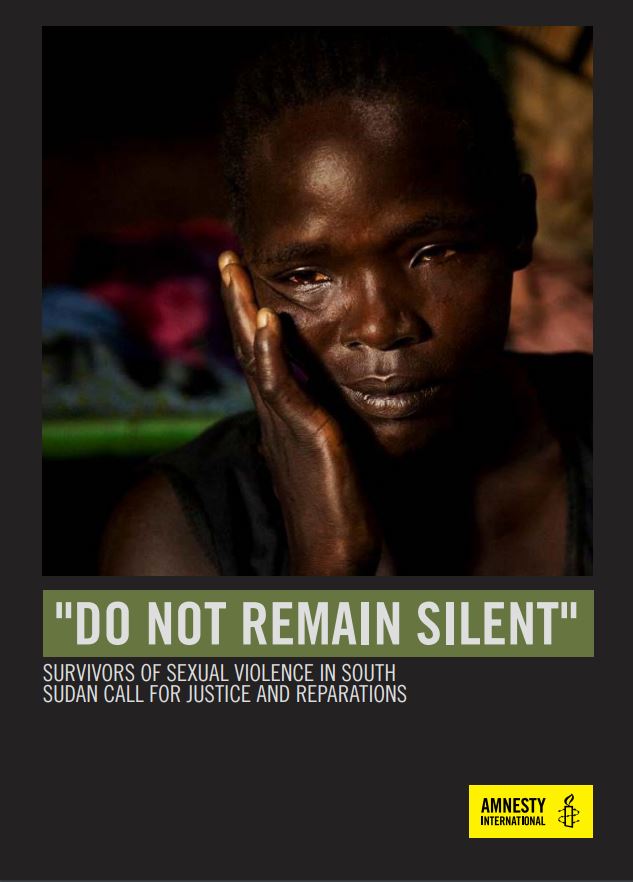 Since the outbreak of South Sudan’s internal armed conflict in Juba in December 2013, thousands of South Sudanese have been subjected to sexual violence including rape, gang rape, sexual slavery, sexual mutilation, torture, castration, or forced nudity. As the conflict continues… Since the outbreak of South Sudan’s internal armed conflict in Juba in December 2013, thousands of South Sudanese have been subjected to sexual violence including rape, gang rape, sexual slavery, sexual mutilation, torture, castration, or forced nudity. As the conflict continues…
|
 Nine months after French authorities closed the large migrant camp known as the “Jungle,” on the edge of Calais, between 400 and 500 asylum seekers and other migrants are living on the streets and in wooded areas in and around the northern French city. Based on interviews with more than 60 asylum seekers and migrants… Nine months after French authorities closed the large migrant camp known as the “Jungle,” on the edge of Calais, between 400 and 500 asylum seekers and other migrants are living on the streets and in wooded areas in and around the northern French city. Based on interviews with more than 60 asylum seekers and migrants…
|
|
|
|
|
|
|
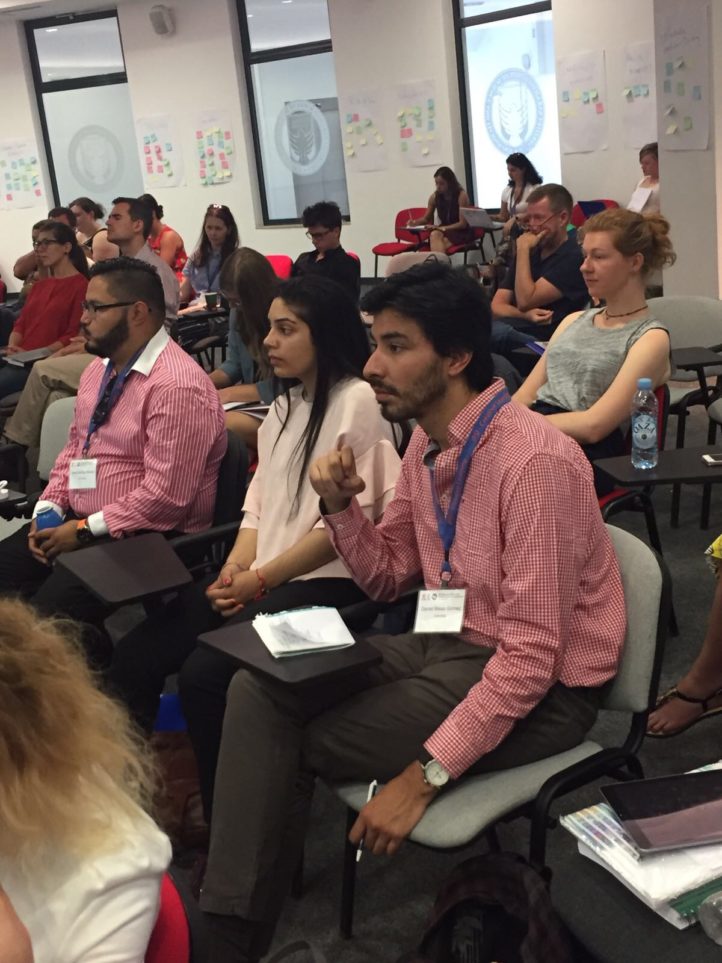 Audra Dykman explored a framework to holistic transitions by looking at the Central Sahel region as a case study to reflect on what has to be done in situations where a transition is urgently needed yet, has to overcome local and regional stability. This could be achieved by… Audra Dykman explored a framework to holistic transitions by looking at the Central Sahel region as a case study to reflect on what has to be done in situations where a transition is urgently needed yet, has to overcome local and regional stability. This could be achieved by…
|
|
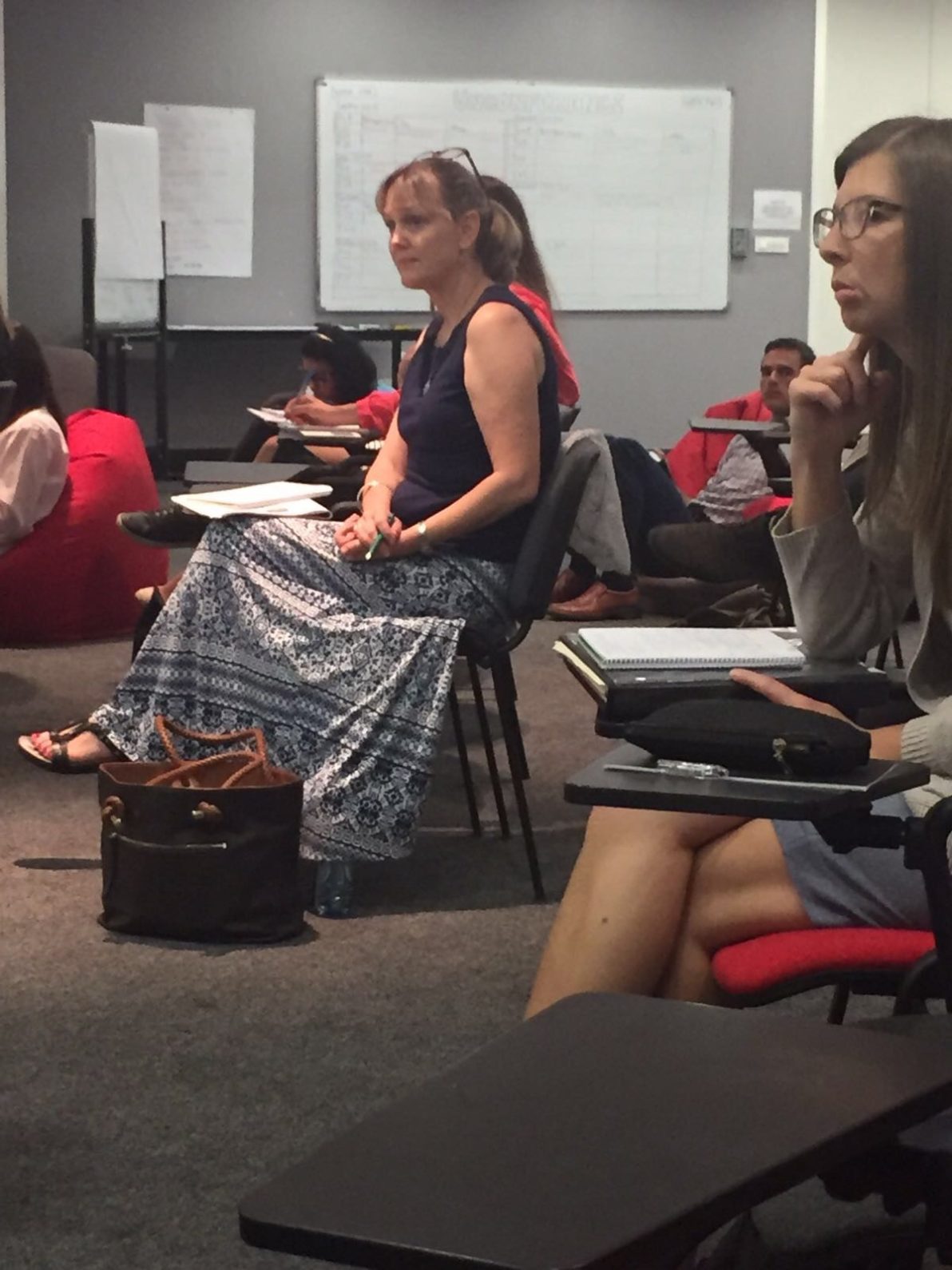 The film screening of “Pretty Village” was a profound glimpse into the dynamics of reentering a community after suffering mass atrocities at the hands of one’s neighbors. I was impressed by the resilience of… The film screening of “Pretty Village” was a profound glimpse into the dynamics of reentering a community after suffering mass atrocities at the hands of one’s neighbors. I was impressed by the resilience of…
|
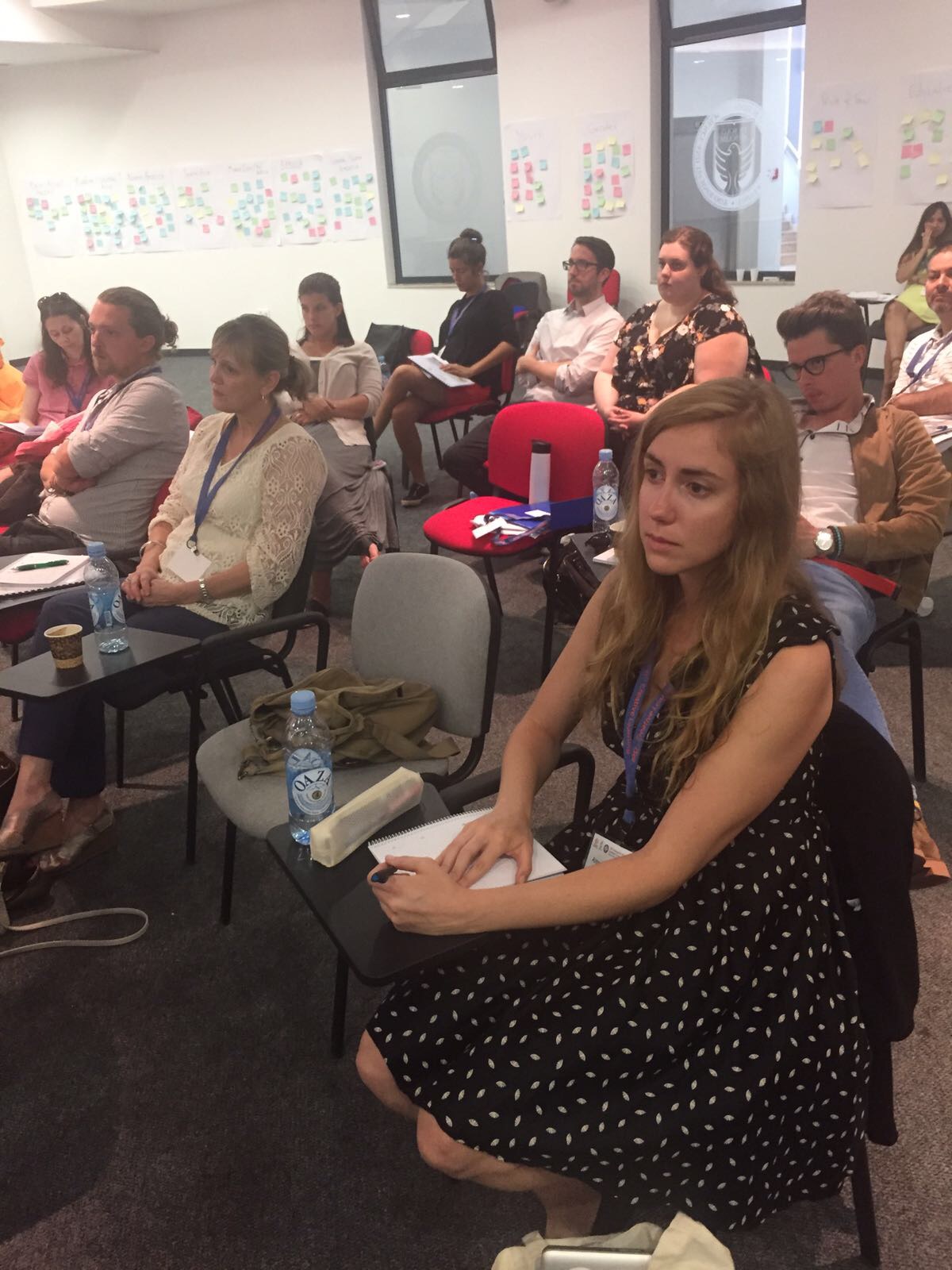 While listening to the speakers today a thought that kept coming to mind was how often one person’s idea of what’s best for someone else isn’t actually what’s best for that person. Human beings do not have a good track record of… While listening to the speakers today a thought that kept coming to mind was how often one person’s idea of what’s best for someone else isn’t actually what’s best for that person. Human beings do not have a good track record of…
|
|
|
|
|
|
|
Sarajevo Blogs!
Experience the Sarajevo Symposium on Post-Conflict Transitions through the eyes of the participants in their daily blog!
|
|
|
|
|
|
|
This week in Sub-Saharan Africa
|
|
|
|
|
DEMOCRATIC REPUBLIC OF CONGO: Warlord surrenders to UN forces
On Wednesday, Ntabo Ntaberi Sheka, a militia leader accused of crimes against humanity, surrendered to the UN. The Congolese government had issued a warrant for Sheka’s arrest in 2011. It is not clear what led Sheka to surrender. However, his forces had been losing combat against another rival militia in recent years. The UN will relinquish him to the Congolese authorities after completing its routine procedures. Comment: The UN reports that “between July 30 and August 2, 2010, Sheka’s militia and two other armed groups raped 387 women, men, girls, and boys in 13 villages along the Kibua to Mpofi road in Eastern Congo.” Multiple attempts to arrest him have been made, but he has managed to escape each time. Nevertheless, he ran for a seat in parliament and campaigned without any attempts to arrest him. (LePontiel, Reuters, HumanRightsWatch)
|
|
|
|
|
|
IVORY COAST: Arrests made for last week’s security unit attacks
On Wednesday, five suspects, including three army soldiers, were arrested following an attack at a security unit housed in the national police academy in the city of Abidjan last week, resulting in one fatality. All stolen weapons and ammunition were recovered. This group was also responsible for an attack on a police base two days later. Comment: The attacks bring into question the Ivory Coast’s image of a post-conflict country after a decade of turmoil and the 2011 civil war. These attacks also bring up security concerns over the Jeux de la Francophonie to be hosted in the Ivory Coast in the coming days which gathers 3,000 athletes and artists from the French speaking countries for a 10-day event. (NewsAbidjan, Reuters, NYTimes)
|
|
|
|
|
|
NIGERIA: Thirty-three dead in clashes between herdsman and farmers
On Sunday, clashes began between Muslim Fulani herders and predominantly Christian farmers in the village of Kajuru lasting two days and killing 37. The unrest erupted after villagers attacked a young Fulani and his father, culminating in the boy’s death. The Kajuri chief had reached out to the Fulani community to explain that the young man was a bandit who had been harassing people in the area. Nevertheless, Fulani youths killed five people accused of commiting the attack. In response, youth from the farming community on Monday burned the tents and property of a Fulani settlement killing 12 people. Security enforcements were deployed to the area to reestablish peace. Comment: The two groups have previously clashed in the Southern Kaduna area over land and water rights. Ethnicity and religion have come at the forefront of the conflict since the violence following the 2011 elections that displaced and killed hundreds of Muslims. Experts point to the government’s militarized response to quell the violence, and provocative comments from political and religious leaders, to explain the surge in clashes. (PremiumTimes, Tribune, TRTWorld)
Researched/Written by Angelica Aimé Silfa
|
|
|
|
|
This week in the Americas & Caribbean
|
|
|
|
|
BOLIVIA/CHILE: Border Committee meets to quell tensions via dialogue
On Tuesday, Chile and Bolivia resumed meetings in Santa Cruz on border-related issues following a recent escalation in tensions. A Border Committee was created to restore functional relations along their 528-mile border. Discussions included previous claims on sea access and the Silala River, the creation of a technical committee, and cooperation between national policing entities. A following meeting is scheduled for October, in Arica. Comment: The joint border has been a source of tension since Bolivia lost its coastline to Chile in 1904. Disputes include Bolivia’s “Mar Para Bolivia” campaign, which claims access to the sea, and the International Court of Justice trial on access to the Silala River in 2013. The two countries have not had full diplomatic relations or mutual embassies in decades. Most recently, tensions flared when nine Bolivian officials were detained on Chilean the border in March. Bolivia announced plans to station forces at the border, but Chile eventually released them on June 28. According to expert Andrés Guzmán Escobari, recent disputes could detonate the outbreak of a major conflict. (Los Tiempos, La Razon, El Deber, Americas Quarterly)
|
|
|
|
|
|
BRAZIL: MST campesinos occupy farms belonging to Temer relations
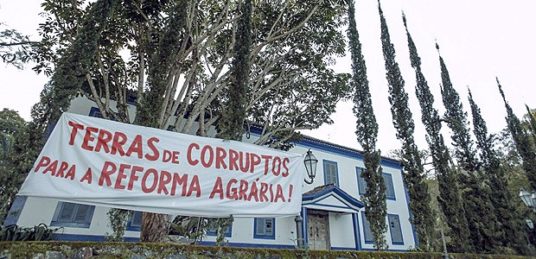 |
|
On Tuesday, more than 500 landless farmers throughout the country invaded and occupied a series of farmlands linked to politicians and businessmen investigated on suspicion of corruption. Among the seized properties were those owned by the Minister of Agriculture, Blairo Maggi; Ricardo Teixeira, former president of the Brazilian Football Confederation; and Colonel João Baptista Lima, a friend of President Michel Temer. The takeover was organized by the Landless Rural Workers’ Movement (MST), which, according to the Associated Press, encourages the seizure of farmland it deems unproductive, as a tactic to pressure the government to return it to public property. The movement released a statement saying that the occupation was part of a campaign to denounce the implementation of land reforms under the austerity measures taken by the government, as well as against the corruption in President Michel Temer’s administration. Comment: According to TeleSur, the land reform proposed by the government eases restrictions on foreigners to own Brazilian lands which, according to the leader of the MST Mercedes Zuliane, violates Brazilians’ rights. Global Witness published a report in July 2017, disclosing that Brazil held the highest rate of killings of land and environmental defenders in the world in 2016. Forced displacement in Brazil is a result of violence from gangs and militias, as well as security forces. (Folha, TeleSur, The Associated Press, Global Witness)
|
|
|
|
|
|
COLOMBIA: Violence displaces 240 from rural northeast regions
|
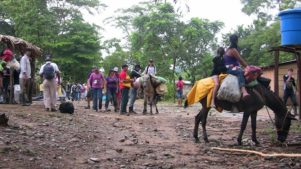 |
On Friday, the UN Office on Human Rights Affairs (OCHA) reported the displacement of 240 persons – composing 60 families – in the northeast region of Santander, due to intense combat between the army and an unidentified illegal armed group since July 18. Landmines found around a local school led to the suspension of classes. All displaced were able to return home before Sunday, presumably due to the retreat of warring parties. The OCHA condemned violations of human rights and international humanitarian law, which prohibits armed groups to engage in combat in populated areas. Comment: This latest UN report comes as violence continues to escalate in Colombia, where armed groups and paramilitaries occupy previously-owned FARC territories, and where the number of killings of social leaders is on the rise. The municipality of Hacari, where a majority of the fights took place, lies on the border of Catatumbo, a coca-rich and lawless land where the National Liberation Army (ELN) and the Popular Liberation Army (EPL) guerrillas, as well as the paramilitary Gaitanista Self-Defense Forces of Colombia (AGC) have been active. According to the UN, the country’s coca production has increased by 50 percent since last year. (TeleSur, Colombia Reports, ReliefWeb)
|
|
|
|
|
|
DOMINICAN REPUBLIC: Haitian migrants get residency extension from Dominican government
|
 |
On Tuesday, the Dominican Republic granted a one-year extension to some 230,000 Haitian migrants trying to renew or obtain residency permits. The “Plan to Regularize Foreigners” was supposed to expire Monday, which would have led to the deportation of more than 220,000 Haitian migrants who were unable to register due to a lack of required documents, including work papers, birth certificates or passports. Also on Tuesday, the Dominican Republic Army deployed 895 additional soldiers to the Haiti border to bolster surveillance and protection, as part of Operación Escudo (Operation Shield). Comment: Following reports of massive arrivals of undocumented Haitian immigrants, raids to detain them have recently been reported across the country. The Joint Workforce in charge of the operations was singled out by the Human Rights Observatory for Vulnerable Groups (ODHGV) and the Mesa Nacional para las Migraciones y Refugiados en la República Dominicana, who accused it of violence, racism and xenophobia, stealing migrants’ belongings and collective deportation, even of those who have provided papers. (Dominican Today 1, 2, Listin Diario, TeleSur, The Washington Post)
Researched/Written by Nastasia Stipo
|
|
|
|
|
|
This week in East Asia & Pacific
|
|
|
|
|
EAST TIMOR: Timor holds first parliamentary elections without UN supervision
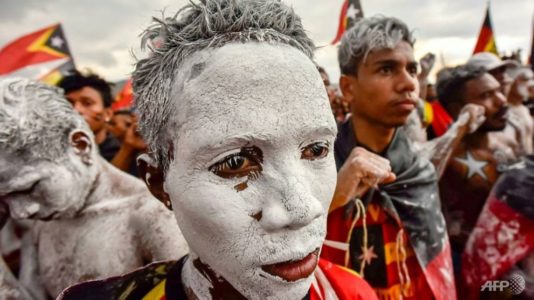 |
|
On Saturday, East Timor held its first parliamentary elections without the supervision of United Nations peacekeepers. With 760,000 citizens expected to vote from among 21 parties, the election will decide the country’s next prime minister. The official results will not be known until August, but preliminary results suggest that the country’s two major ruling parties, Fretilin, and the National Congress for Timorese Reconstruction (CNRT), control 30 percent and 28 percent of the vote, respectively. There were few reports of unrest prior to or during the election. Comment: This is the nation’s fourth election since Timor declared independence from Indonesia in 2002, and the first election not to be supervised since UN peacekeepers departed the country in 2012. Timor currently faces a variety of economic challenges, including a high level of poverty and an over reliance on dwindling oil reserves. (Asian Times, The Star, Nikkei Asian Review)
|
|
|
|
|
|
INDONESIA: President Widodo encourages harsher actions against drug trafficking
|
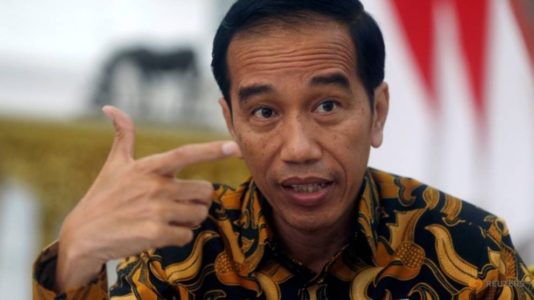 |
On Friday, President Widodo encouraged harsher sanctions against foreign drug dealers due to a “narcotics emergency” in Indonesia, encouraging police officers in a speech to the United Development Party (PPP) to “Gun them down. Give them no mercy.” After an outcry from human rights groups and activists, Johan Budi, a spokesman for President Widodo, claimed that the president’s statement was taken out of context and overblown. Groups including the Human Rights Watch however, expressed concern that Widodo’s statements may be seen as a “green light to police bordering on breaking their own standard procedure”. Comment: President Widodo’s remarks came a week after a police raid in Jakarta on a methamphetamine smuggling ring resulted in Indonesia’s largest drug bust in history, totaling to one ton of crystal meth. During the raid, police officers arrested four Taiwanese men and shot one dead for resisting arrest. (The Jakarta Post, Channel News Asia, The Australian, CNN)
|
|
|
|
|
|
THAILAND: Prime Minister and National Council approves “reconciliation social contract”
On Monday, Junta leader and prime minister Chan-Ocha, with the approval of a government reform panel, passed a “reconciliation social contract” aimed at easing the divisive political climate in Thailand. The contract consists of ten general points encouraging Thai citizens to live for the benefit of the nation. Critics of the ruling junta, however, remain doubtful of the document’s efficacy in promoting actual democracy, saying the contract is mere “window dressing” that will do little to ease national disunity. Comment: Thailand has been politically divided since a coup d’ etat seized control from populist-backed Prime Minister Shinawatra in 2006. The political feuding between the “red-shirts,” supporting former Prime Minister Shinawatra and the“yellow-shirts” has resulted in civil unrest and limited freedom of speech. The current junta government, known as the National Council of Peace and Order, came into power in May 2014, promising to end the political strife. However, the country remains divided over whether the current government has been successful in its efforts. (Reuters, Bangkok Post, The Nation, The Economist)
Researched/Written by Laura Bisbee
|
|
|
|
|
|
This week in Europe & Central Asia
|
|
|
|
|
POLAND: EU threatens legal action against Poland over judicial reforms
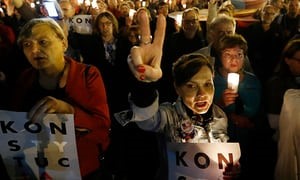 |
|
On Wednesday, the European Commission said it would take legal action against Poland over their recent judicial reforms, claiming that recent laws passed by President Andrzej Duda break EU rules. On Monday, Duda vetoed two bills that would have allowed the government to remove and replace existing Supreme Court judges, but on Tuesday, Duda signed a bill that gives the minister of justice the power to replace judges in district and appeals courts, a move condemned by the EU. The Commission has given Poland one month to either “withdraw the laws reforming the judiciary or bring them into line with the Polish constitution and with European standards on judicial independence,” before beginning the legal process of triggering Article 7 to suspend Poland’s voting rights in the EU. Comment: Duda’s veto of the two judicial reform bills came after over a week of public protests in Poland, and was a shock to the ruling far-right euro-skeptic Law and Justice Party (PiS). A spokesman for PiS has described the EU threats “blackmail” and “not based on facts.” (Krakow Post, Radio Poland, The Guardian, Reuters 1, 2)
|
|
|
|
|
|
SPAIN: Prime Minister faces calls for resignation as he testifies in corruption trial
On Wednesday, Prime Minister Mariano Rajoy became the first sitting prime minister in Spain to testify as a witness in a corruption probe involving 37 former members of his conservative political party, People’s Party (PP). While not under investigation himself, Rajoy testified that he had no knowledge of former party members receiving bribes or commission off of public contracts, nor any knowledge of the party’s financial affairs. After Rajoy’s testimony, opposition leaders unanimously called for Rajoy’s resignation, criticizing him and his statements as “not very credible,” “incompetent,” and “negligent.” Comment: The corruption being addressed in this case has been going on since the 1990’s, and involves the existence of a secret PP accounting system and alleged illegal cash payments made to party officials, including Rajoy. Protestors gathered outside the courthouse Wednesday morning with signs referring to the PP as the “mafia,” and calling Rajoy a criminal. (El País 1, 2, The Local, Reuters)
|
|
|
|
|
|
SWEDEN: Government in upheaval as a result of 2015 sensitive data breach
|
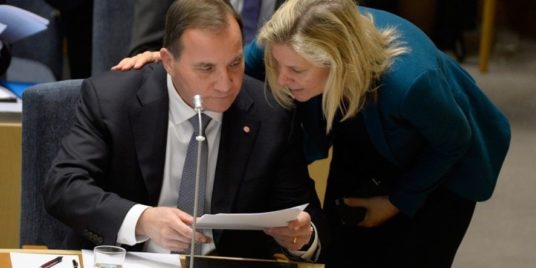 |
On Thursday, Swedish Prime Minister Stefan Lofven announced that his minority government would not resign amidst the political and security crisis gripping the country as a result of a massive 2015 breach of sensitive data. The director general directly responsible for the data leak was fired in January, and on Thursday, it was announced that the Interior and Infrastructure ministers were resigning. Members of Sweden’s opposition Alliance party also confirmed that a no confidence resignation vote against Defense Minister Peter Hultqvist will take place in the fall, after the government’s summer recess. Comment: The data breach was a result of a negligent Transport Agency IT contract with IBM and their overseas subcontractors, and allowed foreign access to Swedish government and police databases, as well as to data regarding personal information of suspected criminals and individuals in witness protection programs. Lofven has ignored calls for a snap election, and the next elections are scheduled to take place in September 2018. (SVT News 1, 2, Nordic Business Insider, Sydney Morning Herald, BBC 1, 2, Reuters)
Researched/Written by Natalie A. Landau
|
|
|
|
|
|
This week in the Middle East & North Africa
|
|
|
|
|
IRAN: Tehran will meet any new U.S. sanctions with “definitive response,” says Deputy Foreign Minister
|
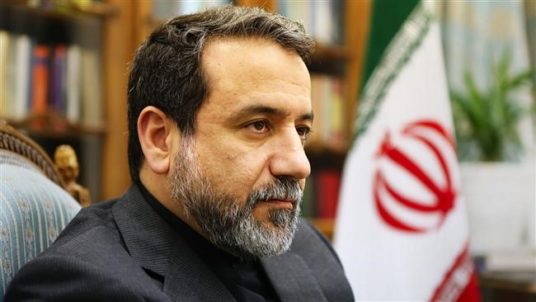 |
On Wednesday, Iranian Deputy Foreign Minister Abbas Araqchi stated that Iran will have a “definitive response” to any new U.S. sanctions to which President Rouhani added that Iran will reciprocate any sanctions imposed on Tehran by the U.S., according to state media. These statements came as new sanctions against Iran are being discussed by the Congress. Earlier in the week, on Tuesday, President Trump warned Iran to adhere to the terms of a nuclear deal with world powers to avoid “big, big problems,” without specifying the type of problems Iran might face. The French foreign ministry said on Wednesday that the U.S. sanctions appeared to be illegal and against international law due to their extra-territorial reach. Comment: On Tuesday, the U.S. House of Representatives voted to impose new sanctions on Iran for supporting “terrorism,” Russia for possible meddling in the 2016 presidential elections and North Korea for missile tests. (Aljazeera, Business Insider, Reuters 1 , 2)
|
|
|
|
|
|
ISRAEL/PALESTINE: Surveillance cameras replace metal detectors at al-Aqsa Mosque compound gates
 |
|
Palestinians refused to enter the al-Aqsa Mosque compound for more than a week and protested by praying outside the mosque area after Israel installed metal detectors at the gates of the compound. This week, Palestinians continued protesting throughout East Jerusalem and occupied the West Bank in rejection of the surveillance cameras installed on Sunday at the gates of the holy site. For Palestinian worshippers entering the Mosque, the installation of the cameras is considered a violation of the individual’s personal space, and it will prevent many worshippers from entering the compound without Israeli permits. More importantly, Palestinians see the installation of the metal detectors and the cameras as a move by Israel to exert more control over the holy site. Israel said that advanced security measures based on new technologies will be implemented within the upcoming six months with a USD 28 million budget. The cameras will be able to detect faces and identities, which gives complete control to Israel over the al-Haram al-Sharif (Temple Mount) area where al-Aqsa Mosque and the Dome of the Rock are located. Comment: Israel says that the surveillance measures are needed to prevent gun smuggling. Around 285 Palestinians and 47 Israelis have been killed in this latest “Jerusalem Uprising (Intifada)”, that started in October 2015. (Aljazeera, New York Post, BBC, CNN)
|
|
|
|
|
|
YEMEN: UN report accuses Saudi-led coalition of attacking Somali refugees off Yemen’s coast
On Wednesday, Reuters revealed a confidential UN report that accuses the Saudi-led military coalition of carrying out a deadly attack last March on a boat carrying Somali refugees’ off the Yamani Red Sea coast. The UN report states that the coalition became a cover for the involved states to avoid individual responsibility and blame. The Saudi-led coalition fighting Houthis in Yemen denied the attack that killed 42 people and injured 34 of the 140 people on board. The helicopter that carried out the attack was likely operating from a naval vessel and “the Saudi Arabia led coalition forces are the only parties to the conflict that have the capability to operate armed utility helicopters in the area,” according to the report. The report said the attack violated international humanitarian law and threatened the peace, security and stability of Yemen. Comment: The coalition intervened in Yemen in 2015 in support of the government of President Abd-Rabbu Mansour Hadi. It includes Egypt, the United Arab Emirates, Bahrain, Kuwait, Jordan, Morocco, Senegal and Sudan. (Aljazeera, Alalam, Reuters)
Researched/Written by Atika Alkhallouf
|
|
|
|
|
|
MALDIVES: Parliament placed under lockdown to prevent opposition impeachment vote
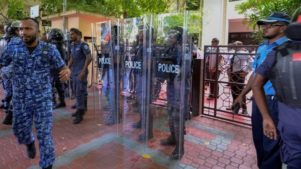 |
|
On Monday, President Yameen Abdul Gayoom ordered the lockdown of Parliament to block the opposition vote to impeach the parliamentary speaker Abdulla Maseeh Mohamed. Lawmakers were prevented from entering the compound by padlocked gates, with military and police forces using pepper spray against those who broke the barrier. Gayoom has ordered that no parliamentary sittings or committee meetings will take place until July 31 citing security concerns about Independence Day celebrations on this past Wednesday July 26. On Wednesday, Sri-Lankan based embassies from nine western countries urged a restoration of independence in a joint statement and claim the shutdown undermines democracy and counters the Maldives’ international human rights obligations. Comment: This was the second attempt by the president to block the vote to impeach the Speaker; the first attempt was in March, when the House Majority leader claimed abuse through electronic voting system and asked for a manual roll call. Gayoom has arrested or exiled most of the opposition that may challenge presidential elections. He also embezzled millions of dollars in tourism revenue. He denies allegations of corruption and human rights abuses. (Maldives Independent, The Wire 1, 2, Al-Jazeera, Reuters, AP 1, 2)
|
|
|
|